When international travellers sign up for a Workaway stint in rural North Canterbury, they don’t expect to be plucking possum fur or wrestling with the ethics of killing hedgehogs. But by the time they leave, many are proud to have played a part in New Zealand’s predator free movement.
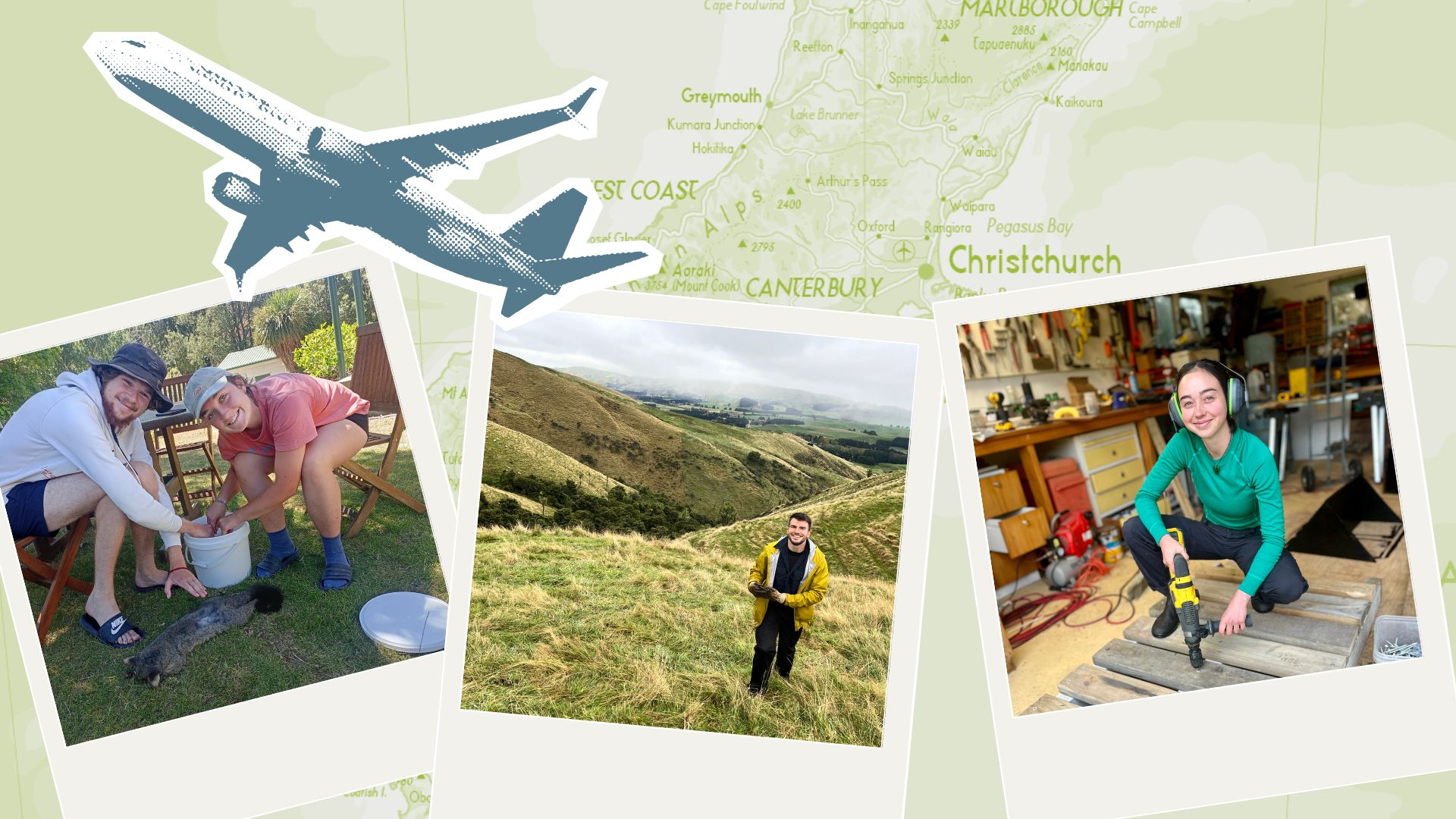
“It feels more urgent here.”
Workaway spans 170 countries where travellers, also known as Workawayers, exchange labour – housesitting, gardening, building – for food, accommodation, and a dose of “real life”. In New Zealand, it’s being used by environmental projects looking for helping hands.
That’s how French couple, Coline and Baptiste, found themselves on a 113-hectare Blythe Valley property in North Canterbury for two months; weeding, baiting traps, picking berries, planting trees, growing vegetables, and plucking possum fur.
“Invasive species in France have been around for so long that they’re often seen as part of the landscape,” Coline observes.
“In New Zealand, by contrast, the ecological damage caused by introduced species is still relatively recent – and more visible. It feels more urgent here, more personal, like you’re trying to undo a historical mistake.
“New Zealand’s biodiversity is so unique and special,” says Coline. “We’re proud to have contributed – even just a tiny bit – to protecting native plants and birds. It made us feel like we were part of something meaningful.”
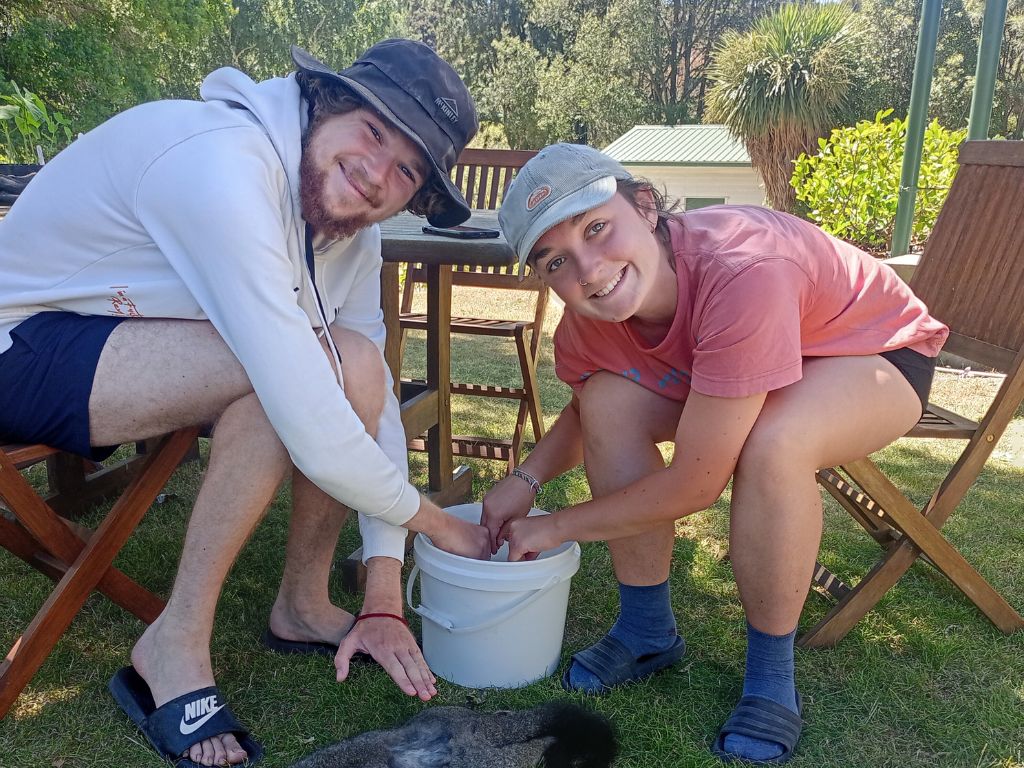
The mammal dilemma
Workaway hosts Richard Shaw and Nicki Murray’s Blythe Valley property has become a magnet for eco-curious travellers, with their off-grid cottage occupied by travellers six to eight months a year. They enlist the help of Workaway travellers for bush regeneration and pest control work. They say most travellers are keen to assist but are unprepared for the moral complexity of New Zealand’s introduced predator problem.
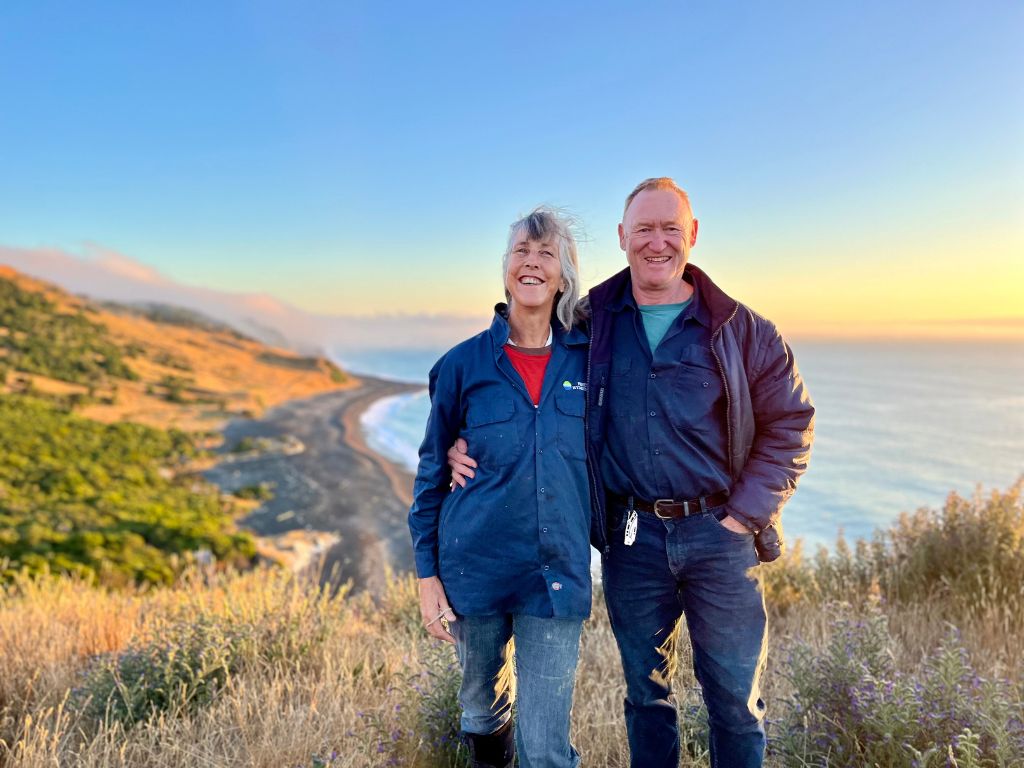
With Workawayers staying a minimum of two weeks, Richard says, “We get to know them pretty well. Most are interested in what we are doing on a day-to-day basis, including checking trap lines so we get a good idea pretty quickly who is okay with it, those that have challenges, or will be squeamish.
“The biggest issue was dealing with hedgehogs, which are protected in Europe and declining in numbers,” Richard explains. “So it was a challenge for people brought up feeding these wild animals in their back gardens to come to terms with their pest status in New Zealand.”
Live capture cage traps have sparked some awkward moments.
“We had some individuals who said they were happy to trap, who then later confessed, when it came down to it, they couldn’t deal with a captured animal, and released them,” Richard says.
“We had to have a hard conversation with them, to explain that they had likely now created a trap-shy predator. It would have been better to have tripped the traps and caught nothing than to release something which would become wary of traps.”
From sceptical to committed
Jonus, a Workawayer from Germany, spent three months with Richard and Nicki. This was his first exposure to pest control.
“I had only done workaways in the States before, and pest control was not on their agenda. Initially, I did not really understand its contribution to conservation. It seemed cruel to me. Only after spending some time on the farm did I begin to see how it plays an important role.”
While on Richard and Nicki’s property, Jonus tackled a number of jobs. “It felt more like an adventure than actual work.”
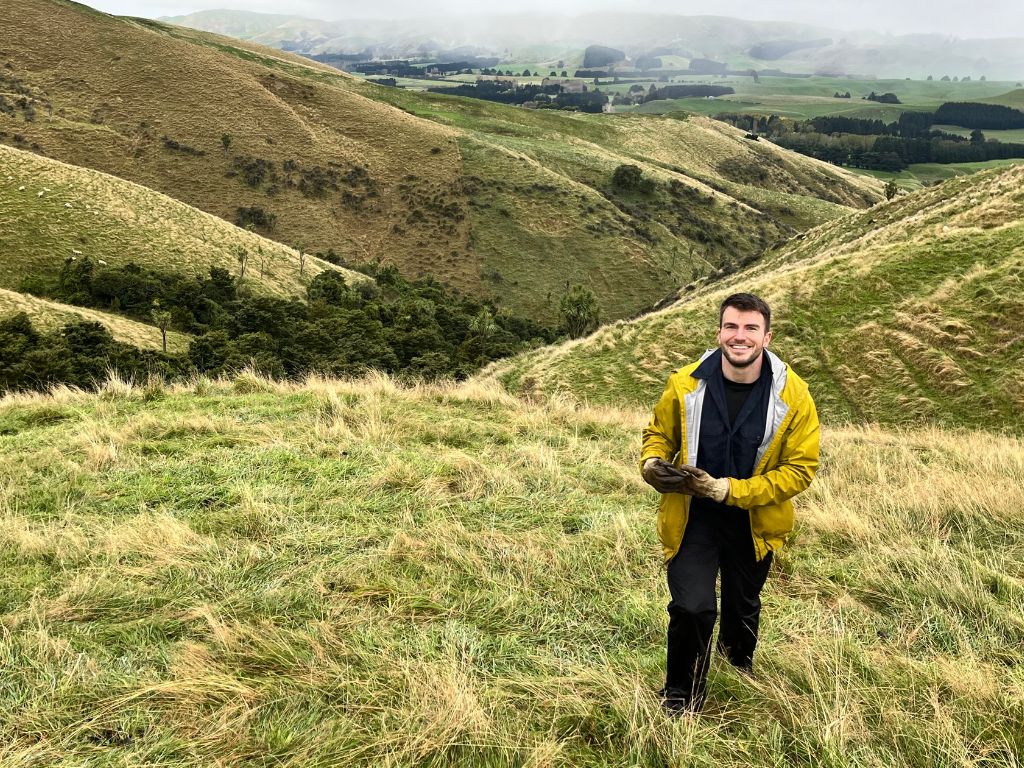
Home-grown travel opportunities
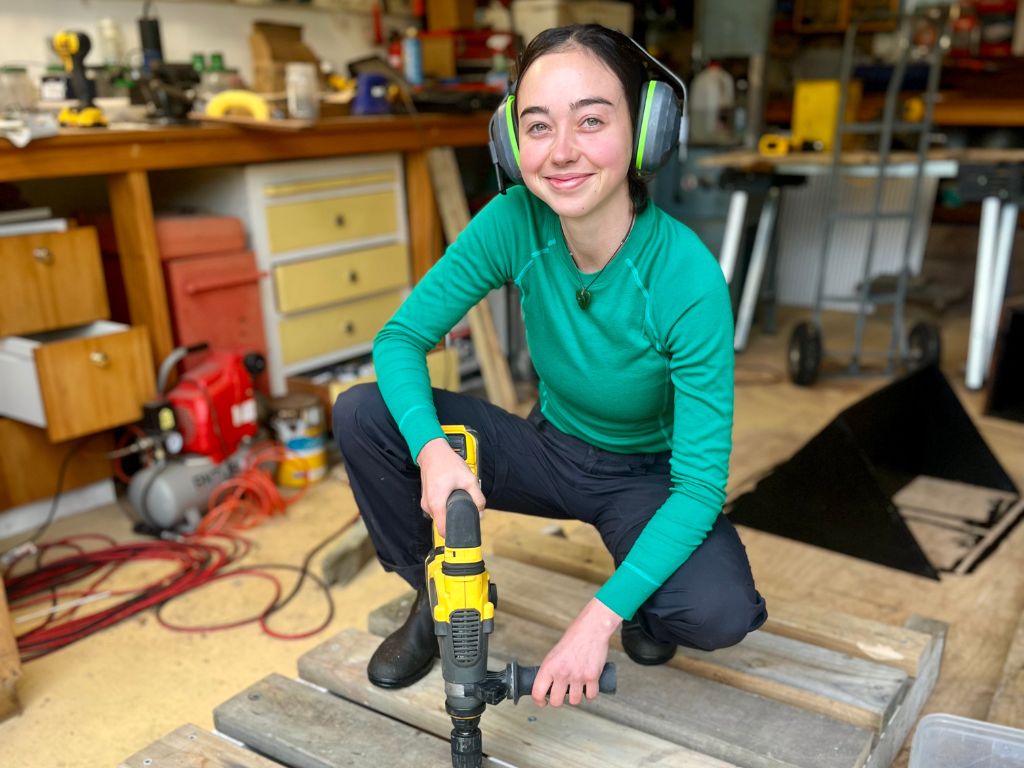
Having just completed her Bachelor of Science in Applied Conservation and a Bachelor of Business in Management at Auckland University of Technology, Elise took the opportunity to use the Workaway scheme to explore her own backyard.
A month-long stay with Richard and Nicki saw Elise building new tracks and bridges, and checking trap lines.
Building on their experience with Trap.nz, a monitoring app used by the couple’s Blythe Valley Community Catchment Group, Elise introduced them to the bird count feature to further enhance the value of their data.
Elise says, “Pausing for a five-minute bird count gives me a moment to appreciate te taiao during a trap line – it’s a simple reminder of why we do this mahi. From a statistical perspective, regular bird monitoring is also a great long-term indicator to compare against trapping data, so it really is a win-win.”
Workaway travelling is more than cultural exchange – it lets visitors to New Zealand help protect our native species, and hosts get help running their environmental restoration projects.

